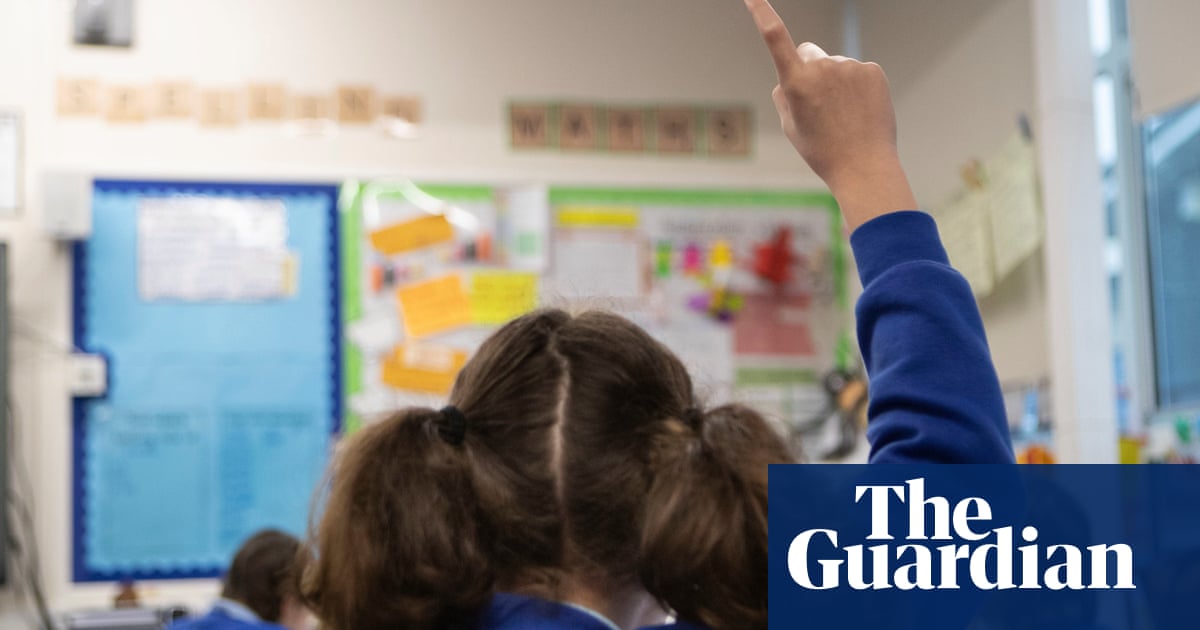
The government’s education catch-up chief has resigned in protest over the prime minister’s scaled-down recovery plan, warning it “does not come close” to meeting the needs of children whose education has been thrown into chaos by the pandemic.
In an emotional statement outlining why he could not remain in his post, Sir Kevan Collins said advising the government on the education recovery plan for England’s pupils had been the most important task of his professional life.
But he said the government’s catch-up offer – a £1.4bn plan announced hours earlier, which he said would mean the equivalent of just £22 per child in the average primary school – “betrays an undervaluation of the importance of education”.
He added: “A half-hearted approach risks failing hundreds of thousands of pupils. The support announced by government so far does not come close to meeting the scale of the challenge and is why I have no option but to resign from my post.”
Collins’s resignation came after his proposals for a “landmark investment” of £15bn in teachers, tutoring and an extended school day to help children catch up were watered down to £1.4bnfor schools in England in an announcement by the Department for Education (DfE) on Wednesday morning.
Pulling no punches, Collins said the package of support fell “far short” of what was needed. “It is too narrow, too small and will be delivered too slowly,” he said, adding that the average primary school will directly receive just £6,000 a year, equivalent to £22 per child.
Other countries are spending far more, including the US which is investing £1,600 per young person, or £2,500 a head in the Netherlands, according to figures provided by the Education Policy Institute.
Collins also said not enough was being done to help vulnerable pupils, children in early years or 16- to 19-year-olds. “Above all, I am concerned that the package announced yesterday betrays an undervaluation of the importance of education, for individuals and as a driver of a more prosperous and healthy society.”
His resignation from the voluntary post is a blow to the government’s post-Covid education plans, which appear to have been severely curtailed by the Treasury. Sources close to Collins said he was optimistic his ambitious programme would get the go-ahead after a series of positive meetings with the chancellor and the prime minister.
But about a month ago at one of the meetings, he was asked to leave the room, according to one source. “Suddenly the Treasury were not playing ball. They thought it was all too much.”
The DfE attempted to persuade Collins to stay, promising more money in the months to come with the autumn comprehensive spending review on the horizon, but the dramatic downscaling of funding and ambition made left him believing he had little choice but to quit.
“You don’t necessarily go into these things thinking you’ll get everything you want,” said one senior education figure. “But when the prime minister asks you to do something, then only delivers 10% of what’s required, it’s pretty difficult to take the process seriously.”
In his resignation letter to the prime minister, Collins said it would be impossible to deliver a successful recovery without “significantly greater support” than the government has so far committed to.
“I am concerned that the apparent savings offered by an incremental approach to recovery represent a false economy, as learning losses that are not addressed quickly are likely to compound.”
He went on: “The package of measures announced today provides valuable support, including important investment in teaching quality and tutoring. However … I do not believe it is credible that a successful recovery can be achieved with a programme of support of this size.”
A former teacher who went on to be the director of children’s services and chief executive in Tower Hamlets, east London, Collins is one of the most well-respected figures in the world of education and his appointment to the role in February added significant credibility to the government’s education recovery plans.
He was most recently head of the Education Endowment Foundation, which examines evidence for what works in education and is widely trusted across the sector.
Responding to his resignation, Geoff Barton, general secretary of the Association of School and College Leaders, said: “We know that Sir Kevan had much bolder and broader plans but that these required substantially more investment than the government was willing to provide. He’s tried his hardest on behalf of children and young people, but, in the final analysis, the political will just wasn’t there to support him.”
A No 10 spokesperson said: “The prime minister is hugely grateful to Sir Kevan for his work in helping pupils catch up and recover from the effects of the pandemic. The government will continue to focus on education recovery and making sure no child is left behind with their learning, with over £3bn committed for catch-up so far.”












